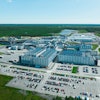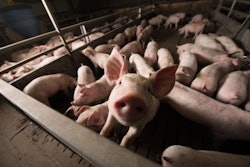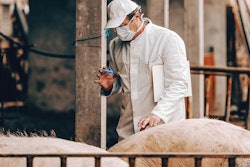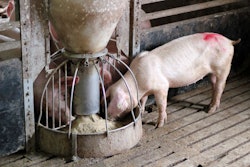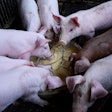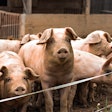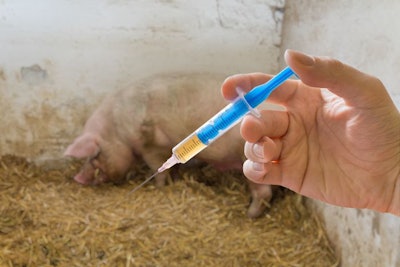
Research shows vaccine candidate has the ability to be commercially produced while still maintaining its efficacy against African swine fever virus
The U.S. Department of Agriculture’s (USDA) Agricultural Research Service (ARS) said one of its African swine fever (ASF) virus vaccine candidates is successful in blocking the spread of the disease.
Newly published USDA research, as highlighted in the journal Transboundary and Emerging Diseases, shows that ARS scientists have developed a vaccine candidate with the ability to be commercially produced while still maintaining its efficacy against Asian ASF virus strains when tested in European and Asian breeds of swine. The findings also show that a commercial partner can replicate experimental level results and prevent the spread of the virus.
Previous studies were done under laboratory conditions only in European-bred pigs using an ASF virus isolate, or sample, from the initial outbreak.
“We are excited that our team’s research has resulted in promising vaccine results that are able to be repeated on a commercial level, in different pig breeds, and by using a recent ASFV isolate,” said ARS researcher Douglas Gladue. “This signals that the live attenuated vaccine candidate could play an important role in controlling the ongoing outbreak threatening the global pork supply.”
The onset of immunity was revealed in approximately one-third of the swine by second week post-vaccination, with full protection in all swine achieved by the fourth week.
A commercial vaccine for ASF will be an important part of controlling the disease in outbreak areas. Researchers will continue to determine the safety and efficacy of the vaccine under commercial production conditions and are closely working with their commercial partner in Vietnam.
“This is a major step for science and agriculture,” said ARS researcher Manuel Borca. “We are working carefully to see our vaccine candidate commercialized through the joint efforts of the U.S. government, and our commercial partner, the NAVETCO National Veterinary Joint Stock Company.”
To date, ARS has successfully engineered and patented five ASF experimental vaccines and has fully executed seven licenses with pharmaceutical companies to develop the vaccines. ARS continues to evaluate additional commercial partners to develop these vaccines.
Gladue and Borca spoke with Feed Strategy in May about USDA’s vaccine candidates and how they were developed and tested.

